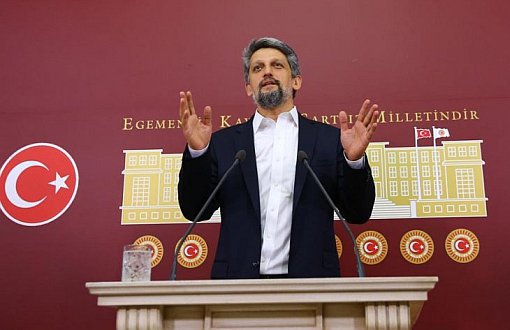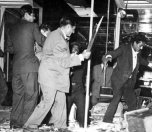* Photograph: AA (Archive)
Click to read the article in Turkish
Garo Paylan, the Diyarbakır MP of the Peoples' Democratic Party (HDP), has submitted a motion to the parliament, requesting that a parliamentary investigation be opened into the pogrom of September 6/7 in its 63rd year.
In the motion that he has submitted, Paylan has stated,
"The Pogrom of September 6/7, 1955 is one of the gravest incidents that took place in the Republic of Turkey and has still not been confronted.
"According to the official figures, in Istanbul only, 73 churches, 8 sacred springs, 2 monasteries, 5 thousand and 538 houses and shops, 3 thousand and 584 of which belonged to the Greeks from Turkey, were destroyed, vandalized and plundered.
"The official records have also shown that 60 women were raped and several people were killed during the incidents.
"It will be an important step for the Republic of Turkey to confront its past by finding the perpetrators of the Pogrom on September 6/7, 1955, identifying the losses of life and property and compensating the material and non-material losses of the victims and/or their families.
"For this reason, we demand that a parliamentary investigation be opened."
In his statement to the press, HDP's Assyrian MP Tuma Çelik has also requested that an investigation be launched into the pogrom.
September 6/7 Pogrom The Istanbul pogrom, also known as the Istanbul riots or September events were organized mob attacks directed primarily at Istanbul's Greek minority on 6–7 September 1955. The riots were orchestrated by the Tactical Mobilisation Group, the seat of Operation Gladio's Turkish branch; the Counter-Guerrilla, and National Security Service, the precursor of today's National Intelligence Organisation. The events were triggered by the false news that the Turkish consulate in Thessaloniki, in northern Greece—the house where Mustafa Kemal Atatürk had been born in 1881—had been bombed the day before. A bomb planted by a Turkish usher at the consulate, who was later arrested and confessed, incited the events. The Turkish press, conveying the news in Turkey, was silent about the arrest and instead insinuated that Greeks had set off the bomb. A Turkish mob, most of which had been trucked into the city in advance, assaulted Istanbul's Greek community for nine hours. Although the mob did not explicitly call for Greeks to be killed, over a dozen people died during or after the attacks as a result of beatings and arson. The police remained mostly ineffective, and the violence continued until the government declared martial law in İstanbul and called in the army to put down the riots. The pogrom greatly accelerated emigration of ethnic Greeks from Turkey, and the Istanbul region in particular. The Greek population of Turkey declined from 119,822 persons in 1927, to about 7,000 in 1978. In Istanbul alone, the Greek population decreased from 65,108 to 49,081 between 1955 and 1960. The 2008 figures released by the Turkish Foreign Ministry placed the number of Turkish citizens of Greek descent at 3,000–4,000;while according to the Human Rights Watch (2006) their number was estimated to be 2,500. (Source: Wikipedia) |
(PT/SD)







132.jpg)